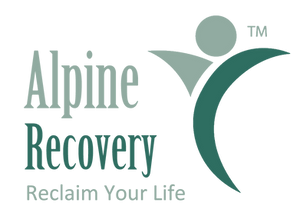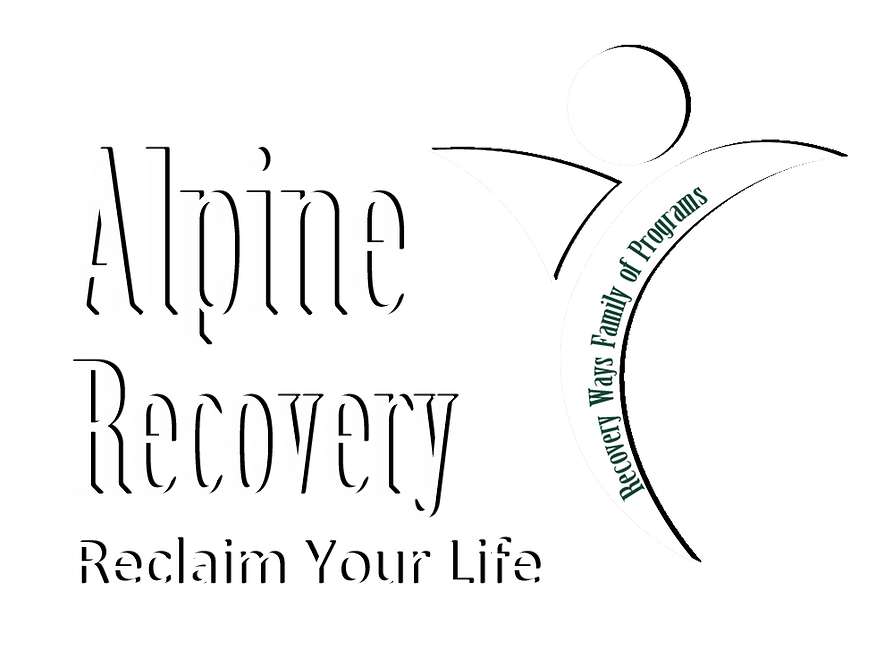Recovery from addiction is rarely a linear journey, and the process of achieving lasting sobriety often involves navigating multiple stages of care, each designed to meet individuals where they are in their recovery. For many people struggling with substance use disorders, the transition from the structured environment of inpatient treatment back to everyday life can be challenging, as they may face triggers, stressors, and responsibilities that put their recovery at risk. Recognizing this critical period, the Partial Hospitalization Program in Everett provides intensive support that bridges the gap between inpatient care and fully independent outpatient treatment, offering a vital foundation for long-term success.
At Alpine Recovery, our Partial Hospitalization Program (PHP) in Everett provides this vital middle ground. The program offers a comprehensive, structured treatment schedule that combines evidence-based therapies, medical support, and individualized counseling with the flexibility for clients to maintain meaningful connections with their families, workplaces, and broader communities. This approach allows individuals to continue applying coping skills and strategies in real-world settings while receiving consistent professional guidance and support. By providing a balance between structure and independence, the PHP helps clients strengthen their recovery foundation, build confidence in their ability to navigate daily life without substances, and gradually transition to outpatient care or other continuing support services. In this way, Alpine Recovery’s program not only addresses the immediate needs of those in recovery but also lays the groundwork for sustainable, long-term sobriety and personal growth.
Understanding the Unique Role of Partial Hospitalization
A Partial Hospitalization Program (PHP) in Everett serves as a vital and often transformative stepping stone within the broader continuum of addiction treatment. While traditional inpatient programs require individuals to reside full-time in a treatment facility, our PHP offers a unique balance: clients receive intensive, structured therapeutic intervention during the day while returning home each evening. This format provides the support and accountability necessary for early recovery without fully removing individuals from their familiar environments. It is particularly beneficial for those who have successfully completed detoxification or residential treatment but still require a high level of guidance to navigate triggers, stressors, and the complexities of daily life that can challenge sobriety.
The strength of our PHP lies in its combination of intensity and flexibility. Clients typically engage in programming five to seven days per week, participating in four to six hours of comprehensive clinical care each day. This includes evidence-based therapies such as cognitive-behavioral therapy (CBT), group counseling, individual therapy, relapse prevention education, and skill-building sessions designed to address both the psychological and behavioral aspects of addiction. Unlike traditional outpatient programs, the PHP allows clients to immediately apply coping strategies, relapse prevention techniques, and communication skills in real-world settings, such as at home, work, or school, reinforcing their learning in practical contexts. Additionally, the program fosters a supportive community of peers and clinicians, creating an environment of accountability, encouragement, and shared growth. By bridging the gap between intensive residential care and full independence, Alpine Recovery’s PHP in Everett empowers individuals to strengthen their recovery foundation, build resilience, and gain the confidence needed for lasting sobriety.
Comprehensive Treatment for Diverse Addiction Challenges
Our Partial Hospitalization Program in Everett addresses the full spectrum of substance use disorders that affect our community. Whether someone is struggling with alcohol addiction, marijuana dependence, or the devastating grip of fentanyl addiction, our multidisciplinary team provides specialized care tailored to each substance’s unique challenges and withdrawal patterns.
The opioid crisis has particularly impacted the Pacific Northwest, making our expertise in treating fentanyl and other opioid addictions crucial for community healing. Our program recognizes that opioid addiction often requires medication-assisted treatment combined with intensive counseling to address both the physical dependence and underlying psychological factors that contribute to continued use.
Similarly, methamphetamine and cocaine addictions present their own complex treatment needs. These stimulant addictions often involve significant changes to brain chemistry and behavior patterns that require specialized therapeutic approaches. Our Partial Hospitalization Program in Everett incorporates evidence-based treatments specifically designed to address the neurological and behavioral aspects of stimulant use disorders.
The Alpine Recovery Difference: Personalized Care Plans
What truly sets our Partial Hospitalization Program in Everett apart is our unwavering commitment to individualized treatment planning and a holistic understanding of each client’s unique recovery journey. At Alpine Recovery, we recognize that no two addiction stories are alike, and generic, one-size-fits-all approaches rarely lead to lasting results. Every individual enters treatment with their own combination of experiences, challenges, and strengths, and our goal is to create a program that addresses all of these dimensions. During the initial assessment phase, our highly trained clinical team conducts a thorough evaluation that goes far beyond simply identifying substance use patterns. We carefully examine co-occurring mental health conditions, trauma history, physical health considerations, family dynamics, social support networks, and environmental factors that may influence recovery. This in-depth understanding allows us to identify potential triggers, risk factors, and opportunities for growth that might otherwise go unnoticed in a standard treatment model.
The insights gained from this assessment directly inform the creation of a personalized treatment plan tailored to each client’s needs, goals, and circumstances. These plans typically combine multiple therapeutic modalities, including individual therapy, group counseling, family therapy sessions, and psychiatric care, with specialized interventions aligned with the primary substance of abuse. For example, someone seeking support for alcohol addiction may benefit from a combination of relapse prevention strategies, motivational interviewing, and medically supervised detox support, while a client addressing cocaine or stimulant dependence might require intensive behavioral therapies focused on impulse control and coping mechanisms for cravings. We also integrate complementary approaches, such as mindfulness, life skills coaching, and psychoeducation, to ensure clients gain practical tools for daily life. By focusing on personalized, evidence-based care, our PHP empowers clients to engage fully in their recovery journey, addressing both the immediate challenges of addiction and the underlying factors that support long-term sobriety.
Evidence-Based Therapies That Create Real Change
The therapeutic interventions offered through our Partial Hospitalization Program in Everett are firmly grounded in scientific research and supported by proven outcomes, ensuring that each client receives the most effective care possible. Cognitive Behavioral Therapy (CBT) serves as a cornerstone of our approach, equipping clients with the tools to identify, understand, and modify the thought patterns and behaviors that contribute to substance use. This evidence-based therapy is highly versatile and effective across a wide range of substances, from alcohol and marijuana to methamphetamine and fentanyl, allowing clients to recognize triggers, challenge harmful beliefs, and develop healthier coping strategies that support long-term recovery.
In addition to CBT, our program incorporates Dialectical Behavior Therapy (DBT) skills groups, which provide clients with essential techniques for emotional regulation, distress tolerance, and interpersonal effectiveness. These skills are especially valuable for individuals who have historically relied on substances to manage intense emotions, stress, or conflict within relationships. The group format fosters a sense of community, peer support, and accountability, giving clients opportunities to practice new skills in a safe and structured environment while benefiting from the shared experiences of others navigating similar challenges.
Recognizing the strong connection between trauma and addiction, our PHP also integrates trauma-informed care principles throughout treatment. For clients with trauma histories, specialized interventions such as Eye Movement Desensitization and Reprocessing (EMDR) are offered when appropriate. Addressing trauma alongside substance use allows clients to process past experiences safely, reduce the emotional triggers that can lead to relapse, and build resilience. By combining these evidence-based therapies with personalized care, our program addresses the complex, multifaceted nature of addiction, ensuring that clients receive comprehensive support for both the psychological and behavioral aspects of recovery. This integrated approach not only promotes healing in the present but also strengthens the skills, insight, and coping mechanisms necessary for sustained, long-term sobriety.
Family Involvement: Healing Beyond the Individual
Addiction does not exist in isolation—it affects entire family systems, profoundly influencing relationships, communication patterns, and the emotional wellbeing of everyone involved. At Alpine Recovery, our Partial Hospitalization Program in Everett recognizes this reality and emphasizes the importance of including family members in the recovery process whenever it is beneficial and appropriate. Addiction often creates cycles of misunderstanding, mistrust, and conflict within families, and addressing these dynamics is essential for both the individual in recovery and their loved ones. Through structured family therapy sessions, our clinicians help repair strained or broken relationships, teach healthier communication strategies, and provide education about addiction as a medical condition rather than a moral failing. These sessions also help family members understand the challenges of recovery, set healthy boundaries, and learn how to support their loved one without enabling destructive behaviors.
Family involvement is particularly crucial when addressing substances that deeply impact household dynamics. For example, alcohol addiction can lead to patterns where family members unintentionally enable continued use, while methamphetamine addiction may create safety concerns, heightened tension, or emotional instability within the home. By engaging the entire family system, we can address these patterns head-on, reducing relapse risk and fostering an environment that promotes healing for all members. In addition to therapy sessions, our PHP may incorporate family education workshops, support groups, and guidance for coping with co-occurring mental health conditions in family members. This comprehensive approach strengthens the client’s support network, enhances accountability, and helps families work together to sustain long-term recovery, creating a foundation of understanding, resilience, and renewed connection that extends far beyond the individual in treatment.
Dual Diagnosis Care: Addressing Co-Occurring Conditions
Many individuals entering our Partial Hospitalization Program in Everett present with co-occurring mental health conditions alongside their substance use disorders. Depression, anxiety, PTSD, bipolar disorder, and other psychiatric conditions often contribute to the development and maintenance of addiction. Our integrated approach ensures that both conditions receive simultaneous treatment, preventing the dangerous cycle where untreated mental health symptoms lead to relapse.
Our psychiatric services include medication management, which can be particularly important for clients withdrawing from substances like alcohol or opioids, where medical supervision helps manage potentially dangerous withdrawal symptoms. The combination of psychiatric care and intensive therapy creates a comprehensive treatment environment that addresses the whole person, not just the addiction.

Building Life Skills for Sustainable Recovery
Recovery involves much more than simply stopping substance use. Our Partial Hospitalization Program in Everett incorporates extensive life skills training to help clients rebuild their lives in recovery. These sessions might cover practical topics like budgeting and job search skills, as well as relational skills like healthy communication and conflict resolution.
For many clients, particularly those with long-term addictions to substances like methamphetamine, cocaine, or opioids, basic life management skills may have deteriorated during active addiction. Our program provides a safe space to practice and develop these essential capabilities while maintaining the intensive therapeutic support necessary for early recovery.
The Everett Community Connection
Located in the heart of Everett, our Partial Hospitalization Program in Everett is uniquely positioned to serve the specific needs of our local community. We understand the particular challenges facing residents of Snohomish County, from economic pressures to the availability of various substances in the region. This local knowledge informs our treatment approaches and helps us connect clients with community resources that support long-term recovery.
Our program also maintains relationships with local employers, educational institutions, and housing resources to help clients rebuild their lives while maintaining their treatment schedule. This community integration aspect of our Partial Hospitalization Program in Everett proves crucial for clients who need to maintain employment or family responsibilities during treatment.
Measuring Success: Outcomes That Matter
At Alpine Recovery, we measure the success of our Partial Hospitalization Program in Everett not just by completion rates, but by long-term sobriety and quality of life improvements. Our alumni frequently report sustained abstinence from alcohol, marijuana, fentanyl, methamphetamine, cocaine, and other substances months and years after completing the program. More importantly, they describe improved relationships, career advancement, and a renewed sense of purpose and joy in life.
These outcomes reflect our comprehensive approach that addresses not only the immediate crisis of addiction but also the underlying factors that contribute to substance use. By providing intensive treatment while allowing clients to remain connected to their communities, our program creates a strong foundation for lasting recovery that extends far beyond the treatment period.
Taking the First Step Toward Healing
If you or someone you love is struggling with addiction to alcohol, marijuana, fentanyl, methamphetamine, cocaine, or other substances, our Partial Hospitalization Program in Everett offers hope and proven pathways to recovery. The journey toward lasting healing begins with a single phone call, and our compassionate admissions team is ready to help you understand your options and take the first steps toward a healthier, more fulfilling life.
Recovery is possible, and with the right support and treatment approach, lasting healing becomes not just a hope, but an achievable reality. Our Partial Hospitalization Program in Everett stands ready to walk alongside you on this transformative journey, providing the intensive care you need while respecting your autonomy and connection to the community you call home. For more information, visit our website https://alpinerecovery.com/ or call us at (360) 658-1388.



